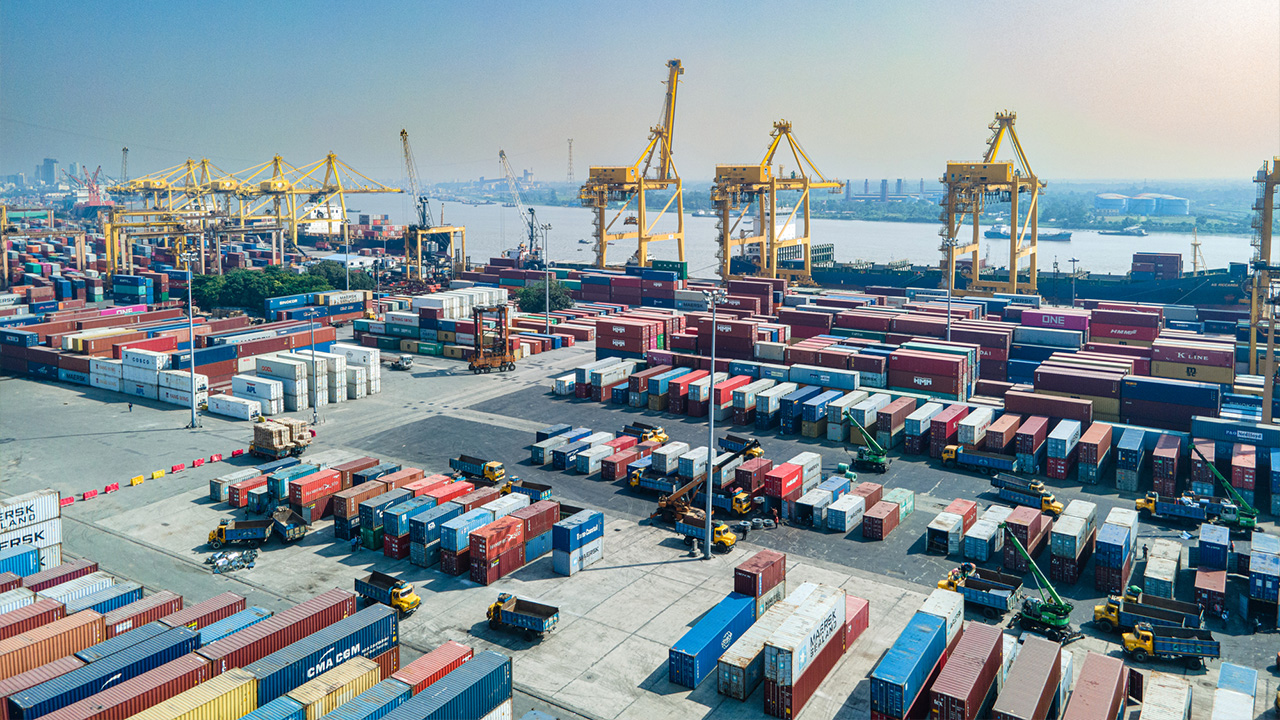
How Startups Are Disrupting Traditional Logistics Services in India
India's logistics sector, a critical backbone of the economy, is undergoing a seismic shift as startups introduce innovative solutions that challenge traditional practices. Traditionally characterized by inefficiencies and a lack of transparency, the Logistics services in India is now being transformed by tech-savvy startups that leverage modern technology to offer faster, more reliable, and cost-effective services. This article delves into how these startups are disrupting the traditional logistics landscape in India, their strategies, and the implications for the industry.
1. The Traditional Logistics Landscape in India
India’s logistics sector has long struggled with challenges such as fragmented infrastructure, inefficiencies, and a lack of integration between different modes of transport. Traditional logistics services often involve multiple intermediaries, leading to higher costs and delays. Inefficient warehousing, cumbersome regulatory processes, and poor road infrastructure further exacerbate these issues.
According to the World Bank, logistics costs in India account for approximately 13-15% of GDP, which is significantly higher compared to global standards. This inefficiency not only impacts businesses but also raises the cost of goods for consumers. The traditional logistics model, reliant on manual processes and outdated technology, has been ripe for disruption.
2. The Emergence of Disruptive Startups
In recent years, a wave of startups has entered the Indian logistics market, each bringing fresh perspectives and technological innovations. These startups are addressing the inefficiencies of traditional logistics by integrating technology and offering solutions that enhance transparency, reduce costs, and improve service delivery. Here are some key areas where startups are making significant inroads:
a. Technology-Driven Solutions
Startups are harnessing technology to streamline logistics processes. For instance, companies like Rivigo and BlackBuck are leveraging data analytics and machine learning to optimize truck routes and reduce delivery times. Rivigo uses a unique model of relay trucking, where trucks are driven by drivers in shifts, thereby reducing transit time and improving efficiency. BlackBuck provides a digital platform for truck owners and operators to connect with shippers, simplifying the process of booking and managing freight.
b. Real-Time Tracking and Transparency
Traditional logistics services often lack transparency, leading to uncertainties and delays. Startups are addressing this by providing real-time tracking solutions. LogisticsNow and FarEye offer platforms that enable businesses and consumers to track shipments in real time, enhancing visibility and reducing the likelihood of delays. These platforms use GPS and IoT technology to provide accurate location data and status updates, which helps in managing expectations and improving customer satisfaction.
c. Warehousing Innovations
Warehousing is another area where startups are making a significant impact. Delhivery and WareIQ are redefining warehousing by offering technology-driven solutions. Delhivery provides a comprehensive logistics service, including warehousing, and uses automation and data analytics to manage inventory efficiently. WareIQ offers a cloud-based warehousing solution that allows businesses to scale their warehousing needs dynamically, reducing overhead costs and improving flexibility.
d. Last-Mile Delivery Solutions
Last-mile delivery, the final leg of the delivery process, is often the most challenging and costly part of logistics. Startups like Lalamove and Dunzo are revolutionizing last-mile delivery by using technology to optimize routes and reduce delivery times. Lalamove connects customers with local delivery drivers through its app, while Dunzo offers a hyperlocal delivery service that focuses on quick deliveries within city limits. These startups are using data to streamline operations and improve delivery efficiency.
3. Key Strategies Employed by Disruptive Startups
The success of these startups can be attributed to several key strategies:
a. Integration of Technology
By incorporating technology such as AI, IoT, and blockchain, startups are enhancing the efficiency of logistics operations. AI-powered algorithms help in route optimization, while IoT devices provide real-time tracking of shipments. Blockchain technology is being explored for its potential to enhance transparency and reduce fraud in the supply chain.
b. Focus on Customer Experience
Startups are placing a strong emphasis on customer experience, offering features like real-time tracking, instant updates, and user-friendly interfaces. This focus on customer satisfaction helps in building trust and loyalty, which is crucial for success in the competitive logistics market.
c. Data-Driven Decision Making
Data plays a pivotal role in the operations of logistics startups. By analyzing large volumes of data, these companies can make informed decisions, optimize routes, and predict demand. This data-driven approach helps in reducing costs and improving operational efficiency.
d. Collaboration with Traditional Players
Rather than completely replacing traditional logistics providers, many startups are collaborating with them to create a more integrated and efficient logistics ecosystem. For example, startups might partner with established logistics companies to leverage their infrastructure while providing advanced technological solutions.
4. Challenges and Future Outlook
While startups are making significant strides, they also face challenges. Regulatory hurdles, infrastructure limitations, and the need for significant capital investment can pose obstacles. Additionally, convincing traditional businesses to adopt new technologies and change established practices can be a slow process.
Despite these challenges, the future outlook for logistics startups in India is promising. The increasing adoption of digital technologies, growing e-commerce sector, and the government’s focus on improving infrastructure under initiatives like Sagarmala and Bharatmala provide a conducive environment for innovation.
The rise of startups is pushing traditional logistics providers to adapt and embrace new technologies. This competitive pressure is likely to drive further improvements in efficiency, service quality, and cost-effectiveness across the logistics sector.
5. Conclusion
Startups are undoubtedly transforming the Logistics services in India, offering solutions that address long-standing inefficiencies and drive significant improvements. By leveraging technology, enhancing transparency, and focusing on customer experience, these new entrants are reshaping the logistics landscape. As the industry continues to evolve, the collaboration between startups and traditional players, coupled with ongoing technological advancements, will play a crucial role in shaping the future of logistics in India.